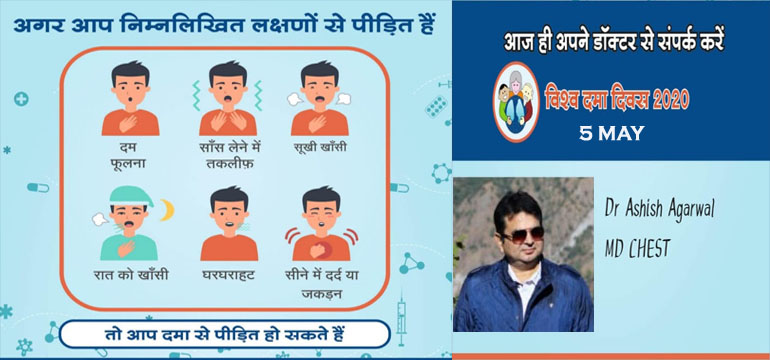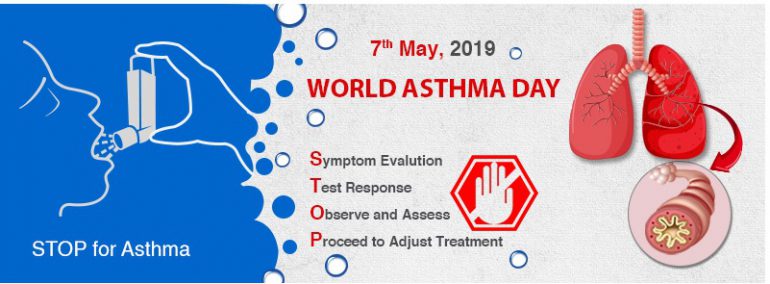
World Asthma Day (WAD)is organized by Global Initiative for Asthma (GINA) towards increasing awareness about asthma and its management across the world. It is observed every year on first Tuesday of May. On this day activities are carried out throughout the world to motivate asthma patients to keep their asthma under control. The inaugural World Asthma Day was held in 1998.
Facts–
- Asthma affects an estimated 300 million individuals worldwide. Annually, the World Health Organization (WHO) has estimated that 15 million disability-adjusted life-years are lost and 250,000 asthma deaths are reported worldwide..
- Asthma is one of the major non-communicable diseases. It is also the most common chronic disease in children.
- Asthma cannot be cured but appropriate management can control the disorder and enable people to enjoy good quality of life.
- Some children with milder forms of asthma don’t have their symptoms with age but symptoms can return without warning.
The theme for WAD 2019 was STOP for Asthma: where STOP stands for Symptom Evaluation, Test Response, Observe and Assess, and Proceed to Adjust Treatment.

Asthma is a disease characterized by recurrent attacks of breathlessness, wheezing, chest tightness, and cough that vary over time in their occurrence, severity and frequency.
During an asthma attack, the lining of the airways swell, causing the air passages to narrow and thus reducing the flow of air into and out of the lungs.
The exact cause of asthma is not completely known, though genetic factors with environmental exposure to certain inhaled substances are found to be risk factors for developing asthma. The common risk factors are house dust ,mites in bedding, carpets and stuffed furniture; pollution and pet dander; pollen and moulds; tobacco smoke; chemical irritants in workplace.
Viral infections, cold air, extreme emotional arousal such as anger or fear, and physical exercise, certain medications (such as aspirin and other non-steroid anti-inflammatory drugs, and beta-blockers which are used to treat high blood pressure, heart conditions and migraine) can also act as triggers for asthma. Urbanization has also been associated with an increase in asthma.
Asthma can be diagnosed with the help of clinical history and breathing tests (pulmonary function test-Spirometry). There is no cure for asthma, but symptoms can be controlled with effective asthma treatment and management. Asthma can be managed by taking medicines as directed by medical professional and learning to avoid triggers that cause asthma symptoms.
Regular exercise can help reduce asthma symptoms. Physical activities are just as important for someone with asthma as they are for someone without asthma though it is important to control asthma before being active. Asthma affects people of all levels of society such as athletes, leaders, celebrities and ordinary people and they live successful and active lives with proper management of asthma.
Know more about asthma Visit at www.nhp.gov.in/
